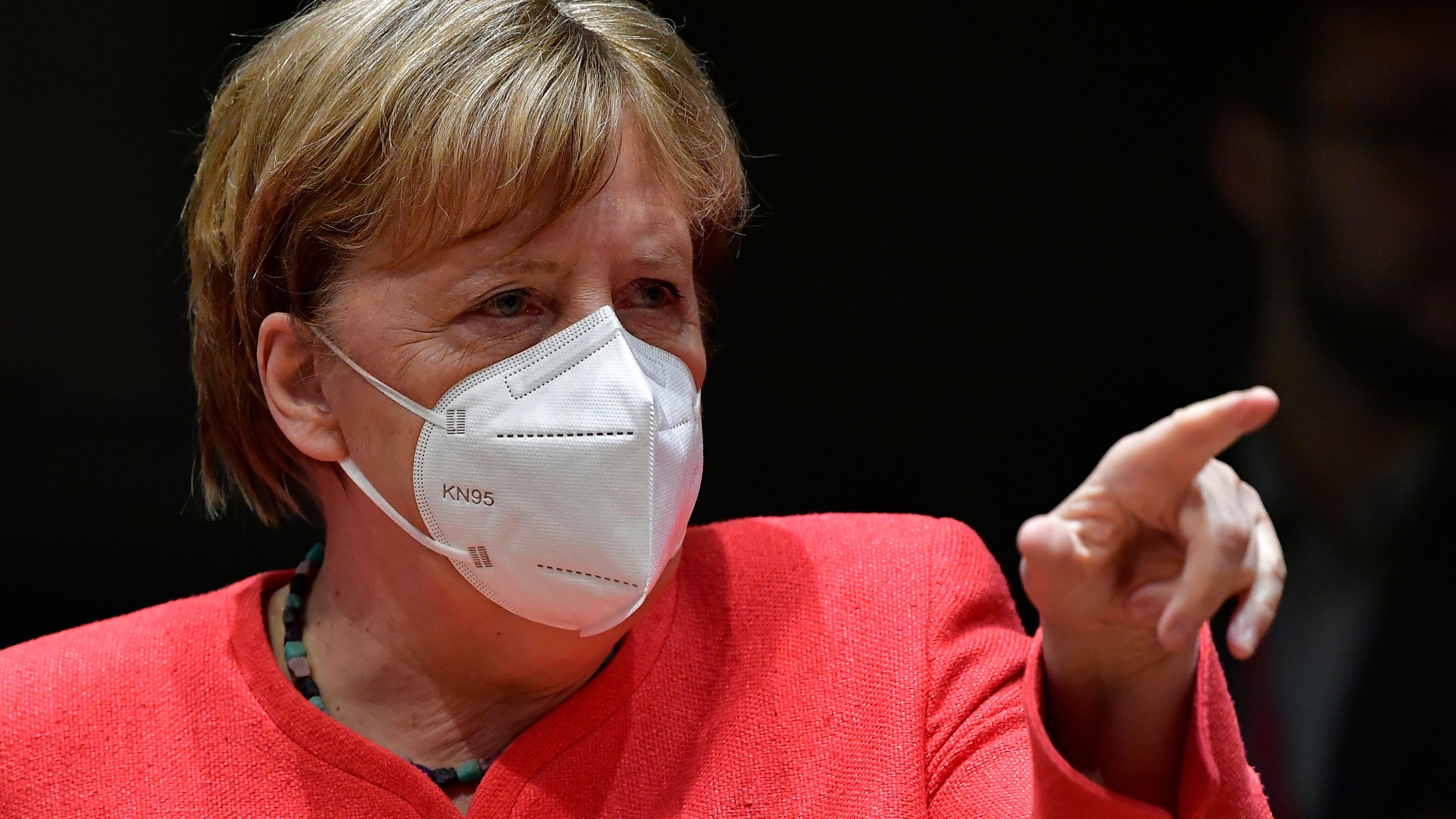Germany ‘violates’ EU joint vaccine scheme by buying 30 million extra doses
Berlin had promoted pact that no members of the bloc would strike separate deals to secure jabs

A free daily email with the biggest news stories of the day – and the best features from TheWeek.com
You are now subscribed
Your newsletter sign-up was successful
The German government has been accused of breaching EU rules by striking a deal to secure an extra 30 million doses of the Pfizer/BioNTech vaccine.
Health Minister Jens Spahn has admitted that Germany purchased the extra doses of the Covid-19 vaccination in a separate agreement after agreeing to buy 60 million doses of the vaccine under an EU-wide deal.
Berlin struck the separate deal in September, when it was “trumpeting the virtues” of a common EU purchasing strategy during its tenure as rotating president of the European Union, The Telegraph reports.
The Week
Escape your echo chamber. Get the facts behind the news, plus analysis from multiple perspectives.

Sign up for The Week's Free Newsletters
From our morning news briefing to a weekly Good News Newsletter, get the best of The Week delivered directly to your inbox.
From our morning news briefing to a weekly Good News Newsletter, get the best of The Week delivered directly to your inbox.
That strategy, conceived as an act of solidarity towards smaller members of the bloc, states that the 27 EU states agree “not to launch their own procedures for advance purchase of that vaccine with the same manufacturers”.
The European Commission “has largely refused to acknowledge” Germany’s “apparent violation of the strategy”, says Politico.
However, President Ursula von der Leyen told reporters on Friday that member states had agreed that “there will be no parallel negotiations or parallel contracts”.
News of Germany’s jabs deal “further muddies a week of confusion and finger-pointing between Berlin and Brussels as German politicians and media call the EU’s deals a ‘vaccination disaster’, claiming it hasn’t secured enough doses”, the news site reports.
A free daily email with the biggest news stories of the day – and the best features from TheWeek.com
Berlin reportedly decided to go it alone after failing to convince other EU states of the need to buy a further 100 million doses of the Pfizer jab.
The EU subsequently signed a deal to purchase 200 million doses of the vaccine. And that order was extended to a total of 600 million doses last week.
But despite the EU’s latest vaccine buy-up, Angela Merkel has been looking further afield to secure more jabs.
The German chancellor told Vladimir Putin last week that she was “open to the idea” of producing Russia’s Sputnik V vaccine in the EU, amid rising criticism of her handling of her country’s mass immunisation programme.
Chas Newkey-Burden has been part of The Week Digital team for more than a decade and a journalist for 25 years, starting out on the irreverent football weekly 90 Minutes, before moving to lifestyle magazines Loaded and Attitude. He was a columnist for The Big Issue and landed a world exclusive with David Beckham that became the weekly magazine’s bestselling issue. He now writes regularly for The Guardian, The Telegraph, The Independent, Metro, FourFourTwo and the i new site. He is also the author of a number of non-fiction books.
-
 How the FCC’s ‘equal time’ rule works
How the FCC’s ‘equal time’ rule worksIn the Spotlight The law is at the heart of the Colbert-CBS conflict
-
 What is the endgame in the DHS shutdown?
What is the endgame in the DHS shutdown?Today’s Big Question Democrats want to rein in ICE’s immigration crackdown
-
 ‘Poor time management isn’t just an inconvenience’
‘Poor time management isn’t just an inconvenience’Instant Opinion Opinion, comment and editorials of the day
-
 A Nipah virus outbreak in India has brought back Covid-era surveillance
A Nipah virus outbreak in India has brought back Covid-era surveillanceUnder the radar The disease can spread through animals and humans
-
 Trump HHS slashes advised child vaccinations
Trump HHS slashes advised child vaccinationsSpeed Read In a widely condemned move, the CDC will now recommend that children get vaccinated against 11 communicable diseases, not 17
-
 A fentanyl vaccine may be on the horizon
A fentanyl vaccine may be on the horizonUnder the radar Taking a serious jab at the opioid epidemic
-
 Health: Will Kennedy dismantle U.S. immunization policy?
Health: Will Kennedy dismantle U.S. immunization policy?Feature ‘America’s vaccine playbook is being rewritten by people who don’t believe in them’
-
 How dangerous is the ‘K’ strain super-flu?
How dangerous is the ‘K’ strain super-flu?The Explainer Surge in cases of new variant H3N2 flu in UK and around the world
-
 Vaccine critic quietly named CDC’s No. 2 official
Vaccine critic quietly named CDC’s No. 2 officialSpeed Read Dr. Ralph Abraham joins another prominent vaccine critic, HHS Secretary Robert F. Kennedy Jr.
-
 This flu season could be worse than usual
This flu season could be worse than usualIn the spotlight A new subvariant is infecting several countries
-
 Covid-19 mRNA vaccines could help fight cancer
Covid-19 mRNA vaccines could help fight cancerUnder the radar They boost the immune system